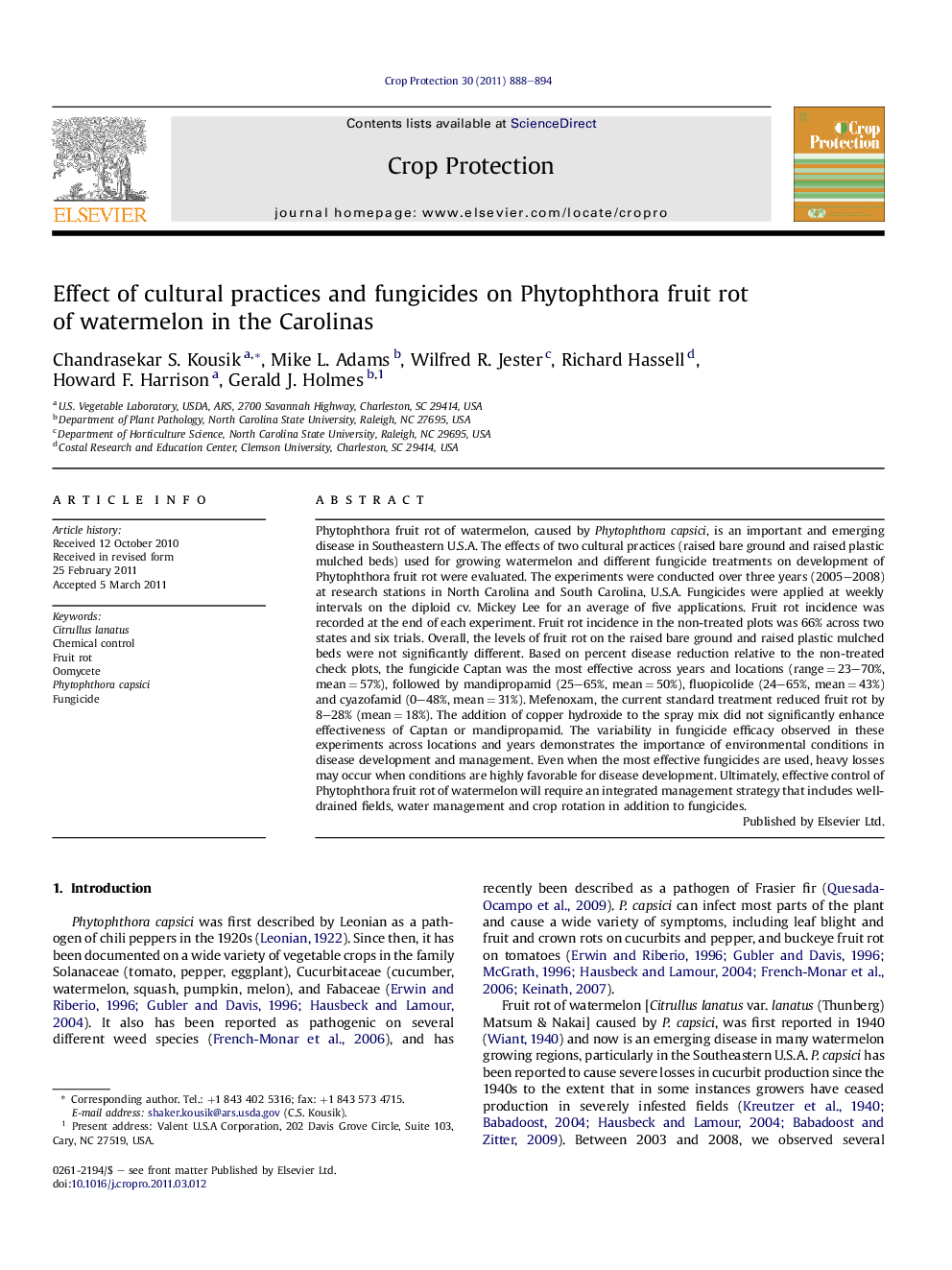| Article ID | Journal | Published Year | Pages | File Type |
|---|---|---|---|---|
| 4506876 | Crop Protection | 2011 | 7 Pages |
Phytophthora fruit rot of watermelon, caused by Phytophthora capsici, is an important and emerging disease in Southeastern U.S.A. The effects of two cultural practices (raised bare ground and raised plastic mulched beds) used for growing watermelon and different fungicide treatments on development of Phytophthora fruit rot were evaluated. The experiments were conducted over three years (2005–2008) at research stations in North Carolina and South Carolina, U.S.A. Fungicides were applied at weekly intervals on the diploid cv. Mickey Lee for an average of five applications. Fruit rot incidence was recorded at the end of each experiment. Fruit rot incidence in the non-treated plots was 66% across two states and six trials. Overall, the levels of fruit rot on the raised bare ground and raised plastic mulched beds were not significantly different. Based on percent disease reduction relative to the non-treated check plots, the fungicide Captan was the most effective across years and locations (range = 23–70%, mean = 57%), followed by mandipropamid (25–65%, mean = 50%), fluopicolide (24–65%, mean = 43%) and cyazofamid (0–48%, mean = 31%). Mefenoxam, the current standard treatment reduced fruit rot by 8–28% (mean = 18%). The addition of copper hydroxide to the spray mix did not significantly enhance effectiveness of Captan or mandipropamid. The variability in fungicide efficacy observed in these experiments across locations and years demonstrates the importance of environmental conditions in disease development and management. Even when the most effective fungicides are used, heavy losses may occur when conditions are highly favorable for disease development. Ultimately, effective control of Phytophthora fruit rot of watermelon will require an integrated management strategy that includes well-drained fields, water management and crop rotation in addition to fungicides.
► Phytophthora fruit rot of watermelon is a serious problem in southeast US. ► Cultural practices and fungicides were evaluated from 2005 to 2008 in NC & SC, USA. ► Raised bare ground or raised plastic mulched beds did not affect the development of fruit rot. ► Fungicides that are effective in managing Phytophthora fruit rot were identified. ► Mandipropamid & Fluopicolide were effective and are registered for use on watermelon. ► Under severe disease pressure losses may still follow despite the use of fungicides.
